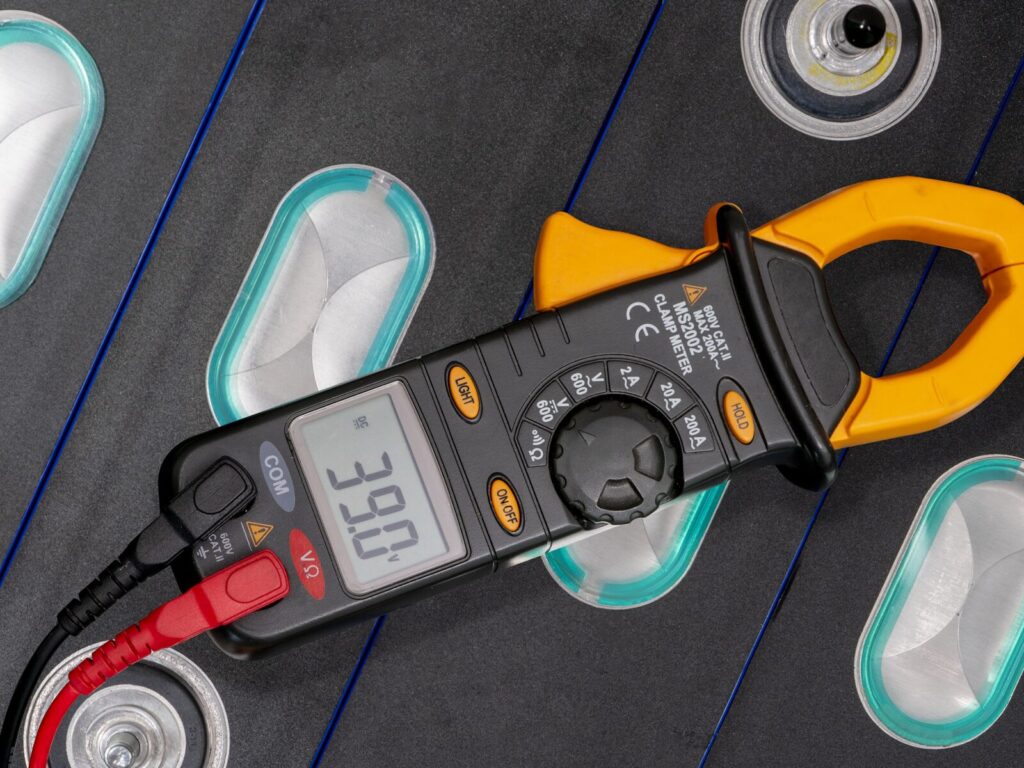The ATS EV battery testing lab supports the automotive industry’s transition to electric and hybrid vehicles. As consumer demand for electric vehicles (EVs) grows, automobile parts manufacturers and suppliers must ensure the safety and performance of EV batteries.
Innovations in EV battery designs allow users to travel further between charges, but larger batteries can pose greater safety risks. To design electric vehicle batteries without sacrificing power for safety, automotive manufacturers consult qualified laboratories, such as ATS. Our EV battery testing lab offers chemical, mechanical, thermal, and electrical tests for a variety of battery manufacturers, types, and applications.
Chemical Testing
Our EV battery testing lab performs chemical testing to study material properties. Clients apply chemical testing results to battery design revisions, reverse engineering, and failure analysis. Deficient batteries are vulnerable to corrosion, degradation, and sulfation with explosive results. Our chemical testing capabilities include:
- Differential Scanning Calorimetry (DSC)
- Gas Chromatography-Mass Spectrometry (GC-MS)
- Thermogravimetric Analysis (TGA)
- X-Ray Diffraction (XRD)
Electrical Testing
ATS’s electrical testing experts study the role of loads, temperatures, and other conditions on electric vehicle battery performance. Clients draw on electrical test results to design reliable batteries and predict the products’ service lives. We provide voltage and current testing.
Mechanical Testing
We offer mechanical testing that measures the battery properties, performance, and endurance in normal conditions. EV batteries must endure varying forces, impacts, and vibrations. To uncover a battery’s properties and flaws, clients request mechanical tests, such as:
- Compressive Testing
- Impact Testing
- Tensile Testing
- Vibration Testing
Thermal Testing
ATS provides thermal tests in temperature-controlled chambers to identify the conditions and failures that precipitate runaway. As a result of internal failures and severe external conditions, a runaway occurs when a battery reaches an uncontrollable, self-heating state.
Internal and external temperatures also impact battery performance. For example, drivers in hot and humid climates may use the vehicle’s AC system to regulate the internal temperature, diverting energy from driving functions. To help anticipate a variety of climates and internal conditions, our EV battery lab simulates extreme temperatures as high as 170˚ C and as low as -60˚ C.
Other EVB Services
In addition to chemical, electrical, and mechanical testing, our EV battery testing lab performs environmental tests, such as cyclic and accelerated aging. To avoid destroying a battery sample during measurements and examination, we use Computed Tomography (CT) to identify defects throughout battery development.
Our experts can take critical battery measurements:
- Voltage
- Internal impedance
- Resistance
- Charge/discharge profiles
Standards-Based Testing
ATS operates multiple ISO/IEC 17025:2017-accredited labs capable of custom and standards-based testing. We can perform a wide range of tests according to industry standards from organizations such as ISO, IEC, ASTM, EN, SAE, MIL-STD, and DIN. Upon request, our experts can design EV battery tests to follow specific electric vehicle testing standards:
- SAE J2464
- IEC 62660
- UN ECE R100
Why Choose ATS?
ATS is a consulting engineering, calibration, testing, and inspection company with over half a century of high-quality customer service and industry recognition. Now at the center of a growing Family of Companies (FoC), ATS is excited to expand our availability to locations nationwide.
We offer a quick turnaround rate, thorough analyses, and comprehensive reporting to help clients make informed business decisions. Clients benefit from our qualifications and recognitions:
- ISO 9001:2015-registered Quality Management System
- ISO/IEC 17025:2017 (A2LA) accreditations in calibration and mechanical, electrical, chemistry, and nondestructive testing
- NADCAP accreditations in nondestructive and materials testing
- CPSC-approved lab
Contact Us
Call +1 (888) 287-5227 to learn more about how ATS can support the automotive industry with EV battery testing! To request battery testing, call us or complete the form on this page.



